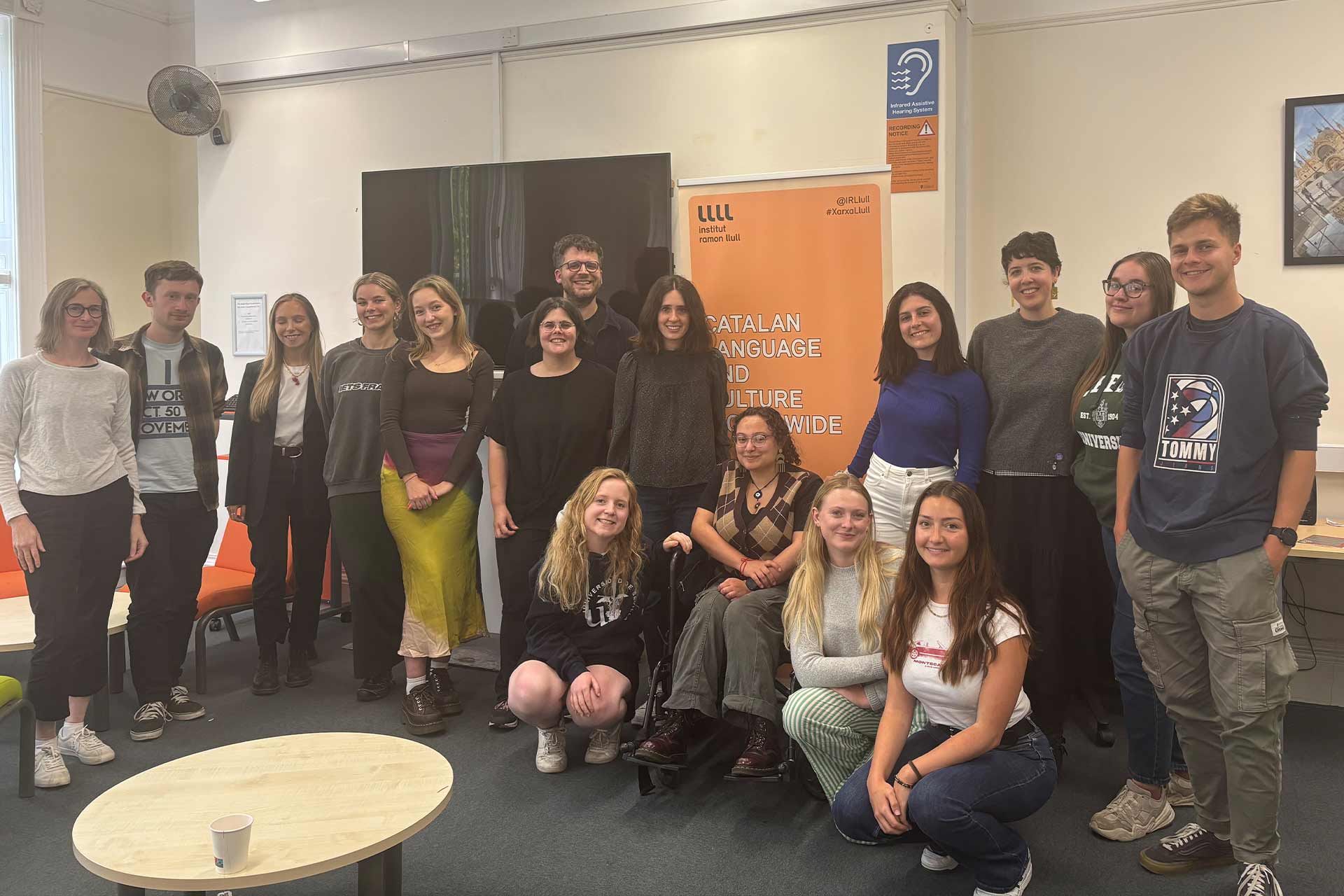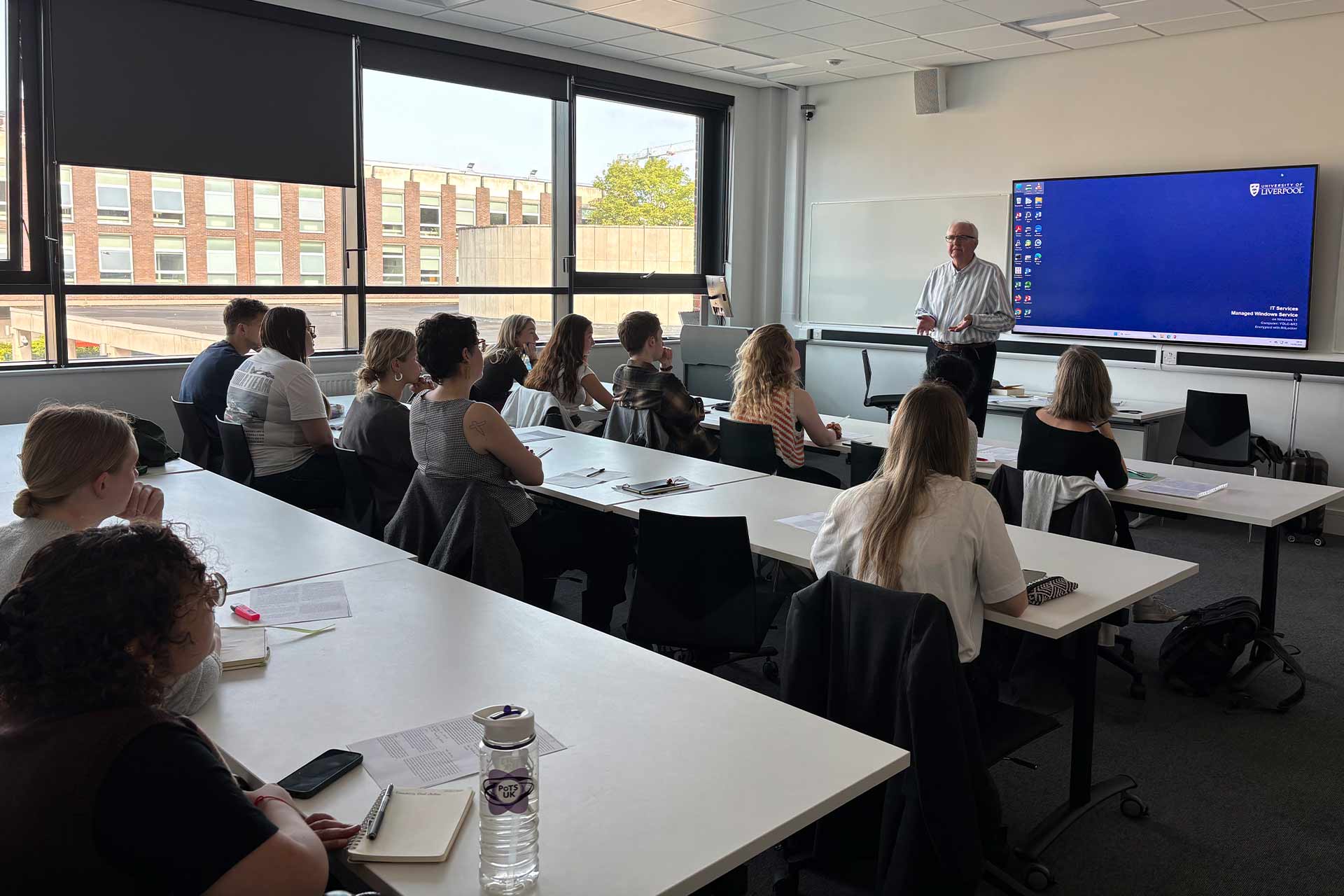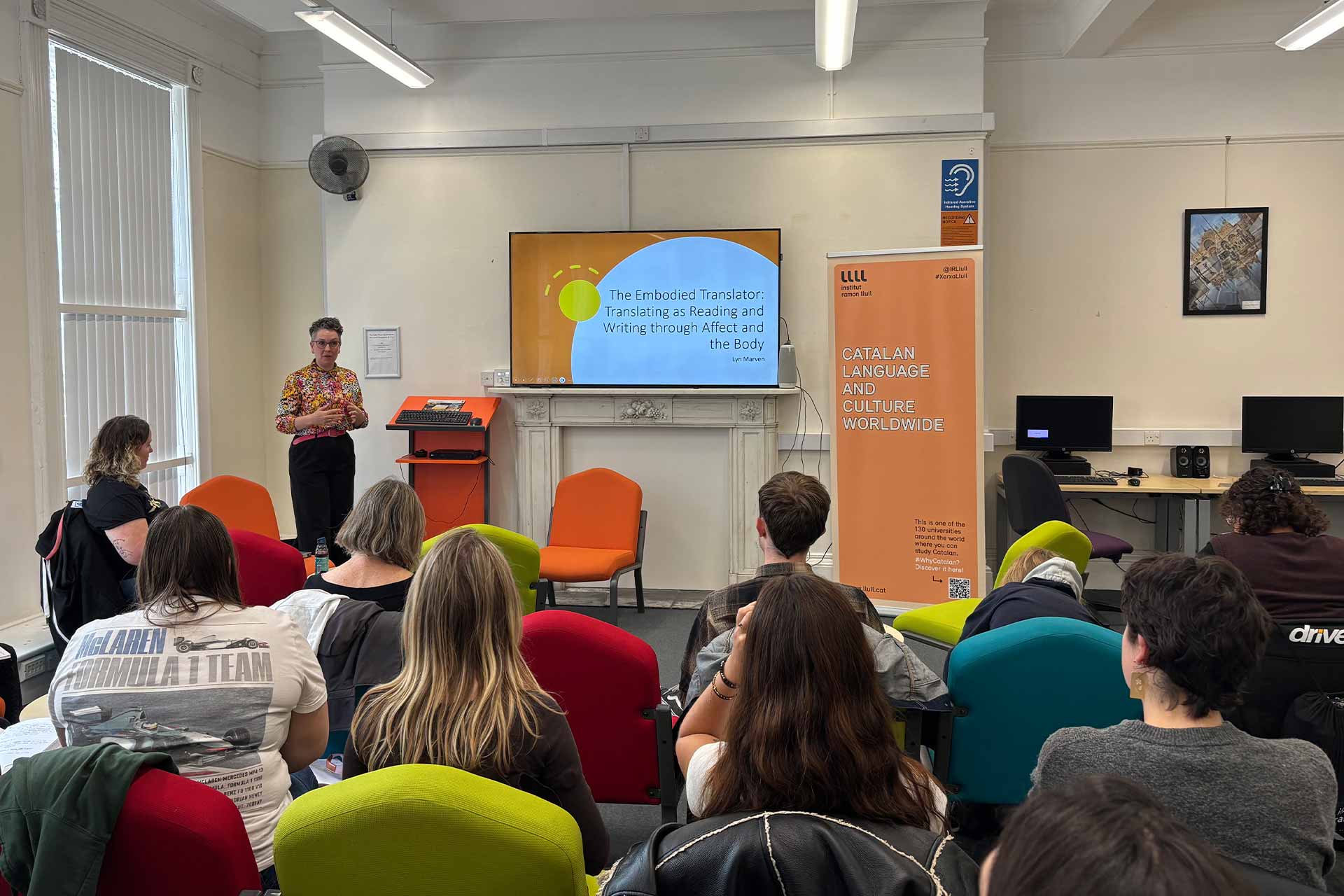
With the end of the academic year fast approaching and the opportunity for new and exciting events within the Catalan department in the year to come, I thought I would share my experience attending the first-ever Catalan-English literary translation seminar hosted by the Institut Ramon Llull. The event was held on the 2nd and 3rd of June 2025 at the University of Liverpool, whose very own Pol Masdeu Cañellas (lecturer in Catalan Studies) co-organised the seminar.
For those who don’t know, the Institut Ramon Llull is the institution responsible for the promotion of the Catalan language and culture internationally; this organisation provides incredible opportunities for Catalan language students and those involved with the Catalan language professionally. I, myself, have been lucky enough to attend one of their Estada lingüístiques (Catalan language summer schools) in Palma, Mallorca, for two weeks in 2023.
The Catalan-English literary translation seminar was organised to provide Catalan students and recent graduates, like myself, the professional tools and guidance required to enter into the world of Catalan literary translation. As a professional field, literary translation is notoriously difficult to break into, especially in a profitable way; as such, the chance to gain many useful tips and an insight into the profession was a fantastic opportunity.

During the two-day, fully funded event, we attended a plethora of lectures and workshops looking at translation techniques and theoretical practice. One of my favourite sessions was with Catalan literary translator, P. Louise Johnson. Johnson’s workshop focused on translating sensitivity, specifically looking at the translation of transphobic slurs and language regarding transgender people in Andrea Víctrix by Llorenç Villalonga (1974), a dystopian novel set in a 2050s Mallorca where family and gender have been discarded. Particularly interestingly, we discussed how a translator may approach the use of the pronoun ‘they’ to refer to a non-binary character when this would not be vocabulary available to the author in the 1960s/70s.

Following this seminar, we worked with Catalan literary translators, Laura McGloughlin and Peter Bush, to get practical advice and to discuss topics such as translating ‘tu’ and ‘vostè’ as formality-markers and translating the work of dead authors. Liverpool’s own Dr Sheela Mahadevan (lecturer in French Studies) and Dr Lyn Marven (Reader in German Studies), who are both literary translators and who currently teach on the translation masters, engaged us in fascinating discussions about translating multilingual literature and ‘The Embodied Translator’. In Dr Marven’s workshop, ‘The Embodied Translator’ we discussed how a translator’s emotional reaction to a challenging text can be felt in their translation and, as a bit of comic relief, we had a go at translating the Hokey Pokey! For me, Dr. Mahadevan’s lecture on multilingual literature was particularly fascinating as I am interested in the interplay between languages in the literature of multilingual regions like North Catalonia (the Catalan region of France).

Equally excitingly, at the end of the seminar, we were able to have a virtual Q&A discussion with Carlota Gurt and Irene Pujadas, whose short stories Cyrano and Adeu definitiu a en Poupolos we translated as part of the application process. Both authors shared their experiences when writing the stories, how they find inspiration and develop characters as well as how they find working with translators and what that process looks like.
Undoubtedly, one of the best parts of this event was the connections I was able to make within the Catalan academic community. There were ten of us in attendance from up and down the country, and each member brought their own unique perspectives into the discussion. It was amazing to be surrounded by so many other people who are passionate about the Catalan language and culture! As it was a two-day event, we were able to share our experiences with Catalan over dinner and drinks; as the only person who had lived in Liverpool, I had the pleasure of showing the group around and without a doubt I have made friends and connections that I will treasure going into the future in both my personal and professional life.